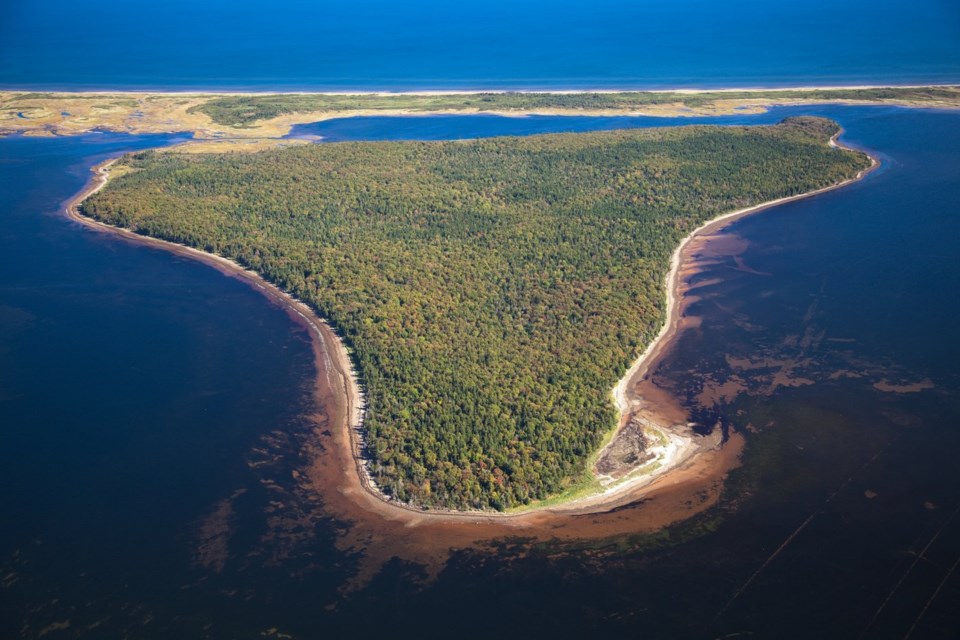LENNOX ISLAND, P.E.I. — The government of Canada and Prince Edward Island’s Mi’kmaq First Nations announced an agreement on Thursday to turn a pristine chain of islands with sacred cultural significance into a national park reserve.
Lennox Island First Nation Chief Darlene Bernard said she’s thrilled about the agreement, which will ensure the protection of the 50-kilometre strip of islands off P.E.I.'s northwest coast called Pituamkek, which means, "at the long sand dune.”
“We have a strong cultural, traditional connection to that land. And the land is going to be protected and allow for our people to always have that land there for future generations to come,” Bernard said of the islands, where Mi’kmaq have hunted, fished and harvested for at least 4,000 years.
The land is also home to a historic Mi’kmaq burial ground.
Federal Environment Minister Steven Guilbeault said the islands form one of the most ecologically significant coastal dune ecosystems in Eastern Canada. The dunes help prevent erosion caused by extreme weather.
"Healthy coastal ecosystems will put us in a better position to protect against a hurricane. So by protecting nature, we are protecting ourselves in many ways," he said in an interview ahead of the announcement.
He said preserving important ecosystems and fighting climate change are "inextricably linked, and Indigenous partnership is crucial to both."
Pituamkek, which can be reached only by boat, is one of the few remaining wilderness areas on P.E.I., Bernard said. Known as the Hog Island Sandhills in English, it's home to such endangered species as the little brown bat, piping plover and gypsy cuckoo bumblebee as well as rare old-growth forests.
Bernard said the hope is to eventually make the islands accessible to visitors, which could “have a transformational effect on tourism” in the western part of the province — though there will be limits on where people can go within Pituamkek.
The federal government announced Thursday that the agreement was reached with Lennox Island First Nation and Abegweit First Nation, represented by Chief Junior Gould. The three parties had reached a memorandum of understanding for establishing a national park reserve in January 2022.
A national park reserve is a designation recognizing an area as subject to an active land claim.
Guilbeault said no date has been set for the official opening of Canada's 48th national park, and steps toward opening the park will be made alongside the government's Indigenous and community partners.
Bernard has been working with the Island’s First Nations to push for protection of the land since 2005. Her hope is that more people can experience the beauty of the islands, just as she and her family have.
“It’s a special place for us. I grew up with only beautiful memories of being over there. As a child, you'd run along the shores, you'd eat clams, you'd eat berries and stuff. And it was just a beautiful, calm, peaceful place to be.”
This report by The Canadian Press was first published July 4, 2024.
-- By Lyndsay Armstrong in Halifax
The Canadian Press



